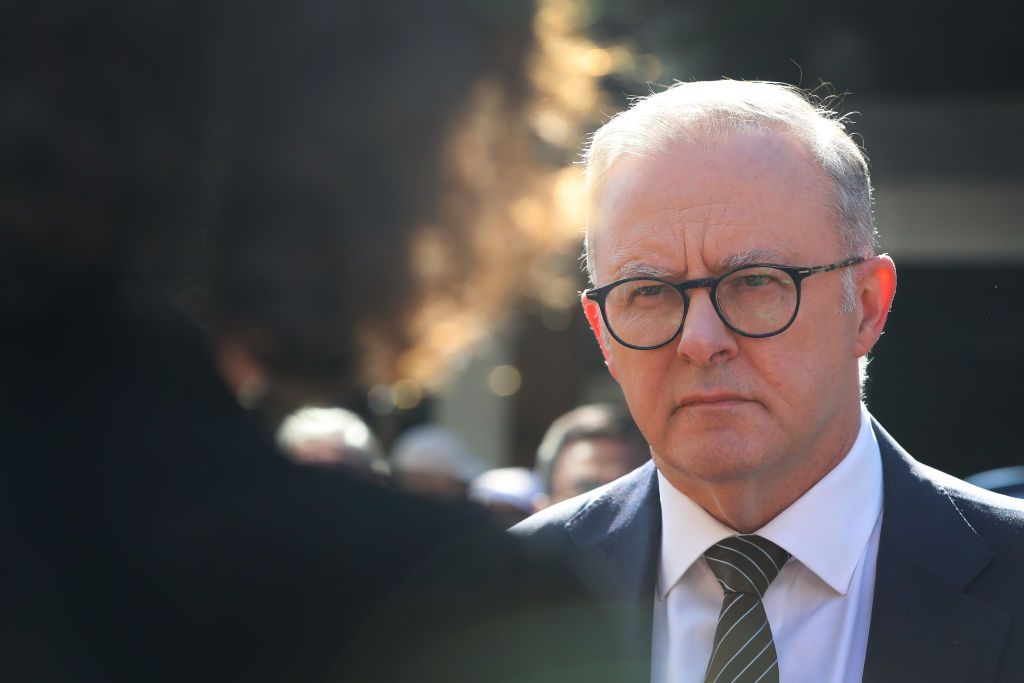Two unrelated acts of stabbing violence, first the random murderous rampage of a knife-wielding man in Sydney’s Bondi Junction, followed by the livestreamed knife attack on an Assyrian Christian bishop in his church, have led to a crackdown on freedom of expression in Australia. Misinformation and disinformation, our politicians have concluded, caused these grim incidents.
Unpalatable as they are, online outpourings of bile and deliberate falsehood need to be seen to be disbelieved.
Australia’s Liberal party, supposedly representing the country’s centre-right voters, has indicated it will back Australia’s Labor government in imposing a legislated regime to ‘combat’ misinformation and disinformation online. The opposition leader, Peter Dutton, has indicated that he would now support Labor government legislation giving the Australian Communications and Media Authority (ACMA) – Australia’s broad equivalent of Ofcom – the power to intervene with social media platforms and content providers (which could include Facebookers and Tweeters) who disseminate what is deemed disinformation.
Dutton, a former defence minister and, before that, the minister responsible for homeland security and counter-terrorist services, appears especially concerned about online radicalisation of young Australians though exposure to extremist propaganda and teaching, including hate-filled Islamist preachers in Australia and abroad. The extent to which such online content may have influenced the teenage boy accused of last week’s church stabbings is part of the ongoing investigation of the crime.
The new bill, released as a draft last September by the Australian government but yet to be introduced into parliament, includes broad definitions of both misinformation and disinformation. Essentially, if it’s deemed ‘false, misleading and deceptive’ by ACMA, and disseminated by a digital service captured by the bill, then it can be sanctioned and prosecuted. Platforms including Facebook, Twitter and Instagram would be in the legislation’s scope.
As for ‘harm’, the bill has a catch-all definition:
- hatred against a group in Australian society on the basis of ethnicity, nationality, race, gender, sexual orientation, age, religion or physical or mental disability;
- disruption of public order or society in Australia;
- harm to the integrity of Australian democratic processes or of Commonwealth, State, Territory or local government institutions;
- harm to the health of Australians;
- harm to the Australian environment;
- economic or financial harm to Australians, the Australian economy or a sector of the Australian economy.
It also gives the responsible minister – the Minister of Truth – the power to refer perceived disinformation to ACMA – the Ministry of Truth – for investigation.
Yet the bill is all but unenforceable if an Australian quango threatens to lay down the law to the likes of Facebook and Twitter/X. Just this week Elon Musk was contemptuously dismissive of the Australian e-safety commissioner’s attempt, backed by a Federal Court of Australia injunction, to force X to take down posts disseminating graphic images of both the Bondi Junction and Sydney church stabbings. Musk doubled down, firing a barrage of tweets attacking the Australian government, and asserting X stands for free speech ‘while other platforms were censoring content’.
There followed a war of words between Musk and Australian prime minister Anthony Albanese, supported by several Australian ministers and Dutton’s opposition. ‘He’s putting his ego and his billionaire’s dollars towards taking a court case for the right to put more violent content on that will sow social division and cause distress to people who are on his platform’, Albanese told Australian TV. What Albanese said was mild compared to some of his ministers.
The unseemly row might be entertaining to onlookers, but it’s only served to highlight how impotent any country’s government is when social media platforms are transnational giants that will swat governments like flies. The same applies to Australia’s disinformation bill. Musk, for all his egotistical arrogance, has a point. The Australian bill’s sweeping scope of what constitutes harm is disturbing, predicated on governments being empowered to censor what their citizens see or hear. That is wrong.
Albanese’s government’s intentions are well-meaning, but what is truth and how is it defined? Who determines what is misinformation and disinformation? If a person tweets, for instance, that man-made climate change is not real, or Net Zero carbon emissions by 2050 is undeliverable, does a government quango, ACMA, insist that both are truths and then crack down on poster and disseminator? If a post criticises government policy in an area specifically stated in the harm definition – say Australia’s draconian crackdown on vaping as it relates to ‘the health of Australians’ – is it liable to ACMA’s tender mercies, even if the post reflects valid scientific evidence challenging the official position?
Do Australian conservatives really want a world where the government of the day becomes the effective arbiter of what people can and can’t say, and how it’s shared?
They did, until now. The bill has not been introduced into parliament because there was no cross-party support for it. When the draft bill was made public last September, Dutton as Opposition leader told Sky News Australia, ‘What the government is proposing here goes well beyond any reasonable measure. It is an attack on free speech, and I think Australians are right to condemn it.’
Dutton was right then. But even if the Liberals negotiate rewriting the bill to make it more palatable to their supporters, the Labor government, beholden to the progressive left, will insist its intent and scope remains dangerously sweeping and catch-all.
Online hate, including sharing images of horrendous violence, is an incubus of our world-wired time. It poisons minds and destroys lives. But unpalatable as they are, online outpourings of bile and deliberate falsehood need to be seen to be disbelieved. Democratic governments must not legislate themselves to be censors, arbiters and prosecutors of what we think and say, and citizens should be trusted to use their own judgment in what they read and see.
Sunlight is the best disinfectant.







Comments